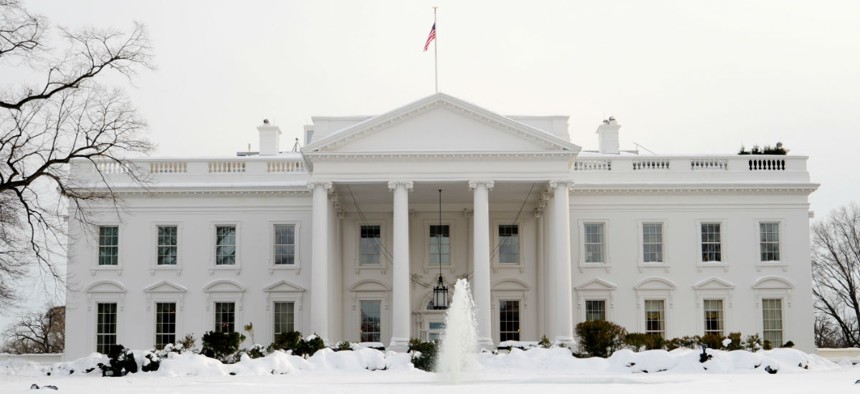
Rena Schild / Shutterstock.com
Are Snow Days in Washington A Thing of the Past?
Telework is an increasingly important tool for agencies and employees during bad weather and other emergencies that trigger federal closures.
The Office of Personnel Management announced no changes for this winter to its policy on closing Washington-area federal agencies during bad weather. But OPM is encouraging federal employees and agencies to bone up on their options for working or taking leave during any emergency that hits the D.C. region over the next year.
Telework is an increasingly important tool for agencies and employees during emergency situations, said acting OPM Director Beth Cobert in a Dec. 16 memo to departments. Federal workers and agencies need to be well-versed on their telework status and policies before an emergency happens, so they know whether they have to work or not when the government’s operating status is disrupted.
“Employees must understand which human resources flexibilities are available to them during specific agency operating procedures, such as unscheduled telework, unscheduled leave, leave without pay, alternative work schedule day off, etc.,” Cobert said in the memo. “In an emergency situation, timing is crucial. Employees must be able to act under their own agency’s procedures when unscheduled telework or unscheduled leave are options, or when provisions in agency telework agreements requiring employees to telework when the federal government is closed have been triggered.”
True “snow days” are quickly becoming a thing of the past for all workers, including federal employees, as telework becomes more commonplace, particularly in the Washington region. Agencies outside of the Washington area can follow OPM’s lead or make their own decisions when it comes to dismissing employees or closing offices under extraordinary weather or other circumstances. OPM determines the operating status for all agencies and offices located in the D.C. area, while local Federal Executive Boards make the call for employees located throughout the rest of the country.
The government has several options when determining its operating status. For example, agencies can be open with the option of unscheduled leave or unscheduled telework; open with delayed arrival; closed; or operating under early dismissal, which in turn affects employees’ work schedules.
Cobert also urged agencies in the Washington region to “avoid taking independent action because changes in the commuting hours of federal employees can result in dramatic disruption of the highway and mass transit systems.”
OPM works with several local and state agencies, as well as other federal partners like the National Weather Service, when weighing whether to close Washington-area federal offices because of inclement weather. The agency takes into account when and where poor conditions will materialize, and whether they will coincide with rush hour. The Washington Metropolitan Area Transit Authority is also part of the conversation since so many federal employees take public transit to and from work. Staggered early dismissal times are important to keep the system from being overloaded and ensuring people get home safely and quickly during bad weather.
Last year, OPM announced an important change: Federal employees scheduled to be on vacation or sick leave when Washington-area federal offices close because of bad weather are now charged for that leave. However, employees scheduled for leave on days when federal offices close can choose to telework that day, if that is an option for them, and won’t be charged for taking annual leave.
The new policy was necessary to reflect the 21st century mobile workplace, the agency said at the time, because even when the government is officially closed, federal agencies technically are still operating because many employees can telework. Before the change, when agencies closed because of inclement weather or another emergency, the day was considered a “non-workday.” On a non-workday, an employee with pre-approved annual or sick leave automatically received an excused absence instead of being charged for leave.
Because there is so much fine print involved, it’s important for employees and agencies to review all the options for work and leave ahead of time.
Click here for announcements on the status of government operations in Washington, D.C., and here to access OPM’s mobile app.
NEXT STORY: Shared Services Save Money, With One Caveat







